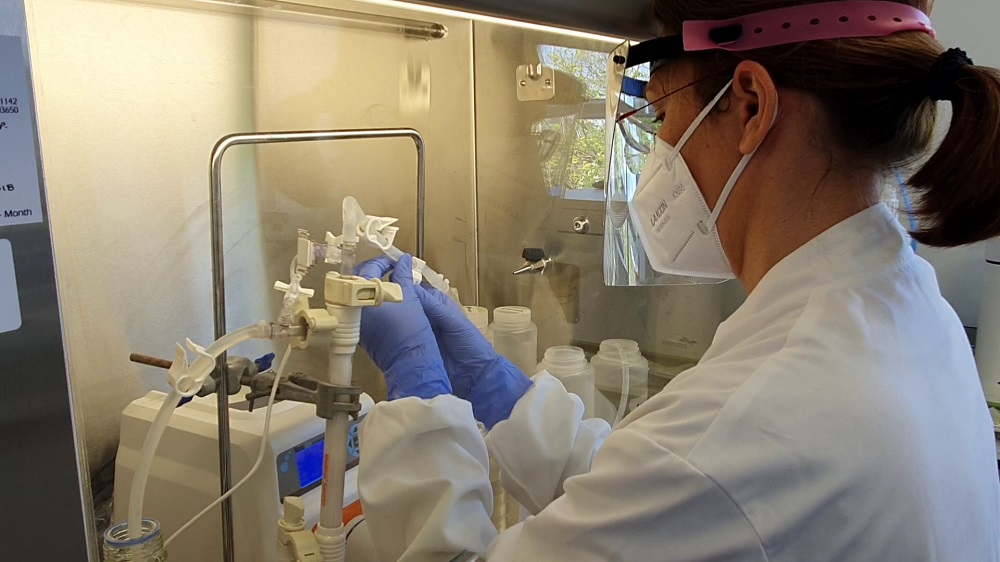Wastewater monitoring project extended to test for other diseases including Polio

A Welsh Government-led programme to test wastewater for Covid-19 has been extended to monitor for other communicable diseases.
The programme is also being expanded to test wastewater from hospitals in Wales.
Scientists from Bangor University initially developed the process of testing wastewater for Covid-19, and this work, carried out in partnership with the Welsh Government, Cardiff University, Dŵr Cymru Welsh Water and Hafren Dyfrdwy was used in the early detection of the Omicron wave across Wales.
As well as testing for SARS-CoV-2 and other variants, the team have now established methods for testing for other viruses of interest, including Polio, norovirus and other stomach bugs, influenza and the respiratory virus RSV and antimicrobial resistance.
The next stage in the development of the programme will see the monitoring of wastewater at nine hospitals and expansion on the surveillance of Polio viruses following the detection of a vaccine derived polio virus in London earlier this year.
Frontline protection
Professor David Jones from Bangor University’s School of Natural Sciences who leads on the development of the programme, said: “This is all about getting as good a picture of what’s going on as we possibly can. Testing specific settings, such as hospitals, enables us to do better frontline protection of people’s health as well as seeing what new pathogens might be entering the country.
“Testing at mass gatherings such as a festival could also give us an indication of how important these are in disease transmission.”
Professor Andy Weightman from Cardiff University’s School of Biosciences and Water Research Institute, co-leading the programme, said: “Expansion of Wales’ Wastewater Monitoring Programme to monitor antimicrobial resistance (AMR) is a key new development.
“The World Health Organisation has declared that AMR is one of the top 10 global health threats facing humanity: it threatens the effective prevention and treatment of an ever-increasing range of infections caused by microorganisms.
“Our new expanded programme will help counter this threat by allowing us monitor the AMR burden so as to understand better how AMR genes and the microbes that transmit them are spreading in our communities.”
Meng Khaw, National Director of Health Protection and Screening Services, Public Health Wales, said: “This surveillance will be crucial in enabling us to monitor and respond quickly to emerging incidents and outbreaks of communicable disease and deepen our understanding of antimicrobial resistance, helping us to protect and improve the health and wellbeing of people in Wales.
“Waste water surveillance has been crucial in identifying the presence of poliovirus in London, and now Wales will also be in a position to identify this and other emerging diseases to take early action.”
Support our Nation today
For the price of a cup of coffee a month you can help us create an independent, not-for-profit, national news service for the people of Wales, by the people of Wales.




